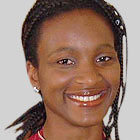Laurent Gbagbo has put Ivory Coast on a precarious path
By refusing to accept the poll result, Gbagbo is pushing Ivory Coast to the brink of war, like a fly following a corpse into a grave

- guardian.co.uk, Tuesday 21 December 2010 00.01 GMT
 UN peacekeepers in Ivory Coast take position near a line of barbed wires at the entrance of the UNOCI headquarter in Abidjan. Photograph: Issouf Sanogo/AFP/Getty
UN peacekeepers in Ivory Coast take position near a line of barbed wires at the entrance of the UNOCI headquarter in Abidjan. Photograph: Issouf Sanogo/AFP/GettyWhen, on 28 November – after Ivory Coast's elections had been postponed several times by the then president, Laurent Gbagbo – Ivorians took to the polls, there was a very real expectation that Gbagbo's government had come to an end. Unfortunately, they had miscalculated Gbagbo's determination to hang on to the post he had held since 2000 and which he – and his cohorts – see as his birthright. Who cares that he had overstayed his welcome by five years already? Or that the election commission declared the opposition leader, Alassane Ouattara, winner? Or that there has been harsh criticism from the international community? Or indeed that the country is being pushed again to the brink of war? Why on earth did Gbagbo stand for elections if he was not prepared to accept the results? Why did he bother going through the farce?
The Igbo say that the fly that has no adviser follows the corpse into the grave. It is my thinking that Gbagbo is like such a fly. If he has advisers at all, I suspect that they are of the same ilk as Robert Mugabe's. My suspicion is in no small way influenced by the fact that he, like Mugabe, rather than acceding power to the recognised winner, is proposing a power-sharing deal. Ivory Coast is the largest economy in the African financial community (CFA) zone and Gbagbo is loath not to sit on top of all that cocoa wealth. But Ouattara is no Morgan Tsvangarai. He has called on his supporters to seize the state television and the presidential palace. Gbagbo and his supporters have vowed to fight to stay on. Things are not looking good for a country already troubled in the past by political instability and violence. Divisions along ethnic and regional lines are being crystallised, exacerbated by Gbagbo's refusal to retreat gracefully .
On the streets of Ivory Coast's largest city, Abidjan, ordinary citizens are worried about what the future holds for them. Food prices have shot up because it has become increasingly difficult to transport produce from the countryside. Post-election violence has already cost lives. For putting Ivory Coast on this precarious path, which could have a devastating impact on the region around it; for forcing the democratically elected president to operate from the lawns of a hotel; I nominate Laurent Gbagbo as my villain of 2010. In Nigerian Pentecostal parlance, with an eye on the forthcoming Nigerian elections, I cast and bind all like-minded spirits, and drown them in the river Niger.